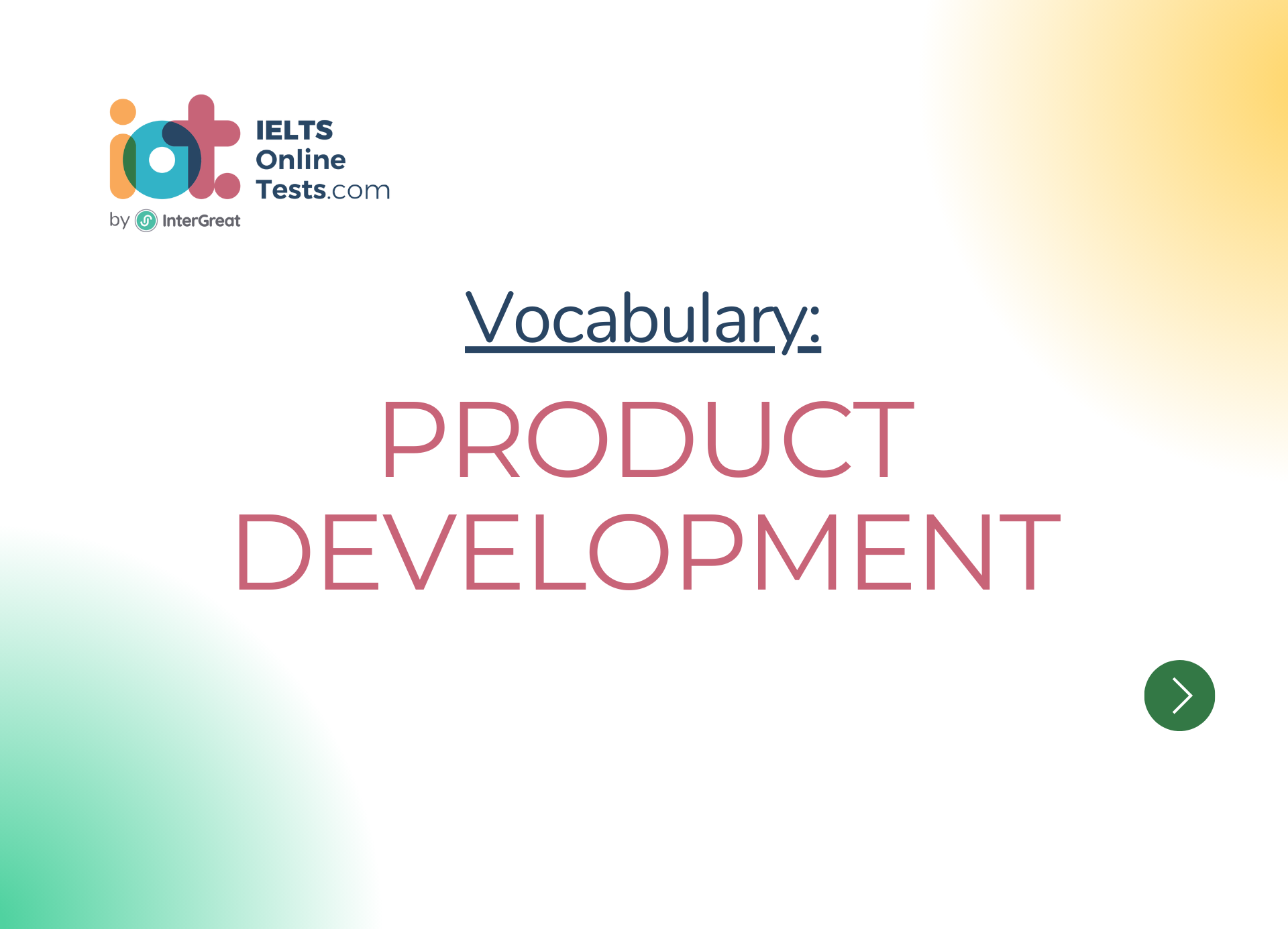
Product development
Here are some vocabulary words related to product development for IELTS band scores 4.5-6.0:
Product Development:
The process of creating and improving a new product or modifying an existing one to meet customer needs and preferences.
Market Research:
Gathering and analyzing information about customer needs, preferences, and market trends to guide product development decisions.
Concept Development:
Generating and refining ideas for new products or product improvements.
Prototype:
A preliminary model or sample of a product used for testing and evaluation.
Design Phase:
The stage in product development where the product's specifications, features, and appearance are determined.
Testing and Evaluation:
Assessing the product's performance, quality, and usability to identify areas for improvement.
Market Testing:
Introducing the product to a limited market to gather feedback and assess its potential success.
Product Launch:
The introduction of the new product to the market.
Product Life Cycle:
The stages a product goes through from introduction to decline, including growth and maturity.
Product Differentiation:
Making a product unique to stand out from competitors in the market.
Product Line Extension:
Adding new variations or versions of an existing product to the product line.
Product Portfolio:
The collection of products offered by a company.
Innovation:
Introducing new ideas, methods, or technologies into the product.
Features and Benefits:
The specific characteristics and advantages of a product.
Product Packaging:
The design and materials used to encase and protect the product.
Product Pricing:
Determining the price at which the product will be sold in the market.
Cost-Benefit Analysis:
Evaluating the costs and benefits of developing and launching a product.
Product Strategy:
The overall plan and approach for developing and marketing the product.
Target Market:
The specific group of customers that the product is intended to serve.
Market Segmentation:
Dividing the market into distinct groups based on shared characteristics or needs.
Product Positioning:
Creating a unique image and identity for the product in the minds of customers.
Product Launch Plan:
The detailed schedule and activities for introducing the product to the market.
Competitive Analysis:
Assessing the strengths and weaknesses of competitors in the market.
Product Rollout:
The gradual release of the product to different markets or regions.
Product Maintenance:
Providing ongoing support and updates to the product after its launch.
Product Adaptation:
Modifying the product to suit the preferences and needs of specific markets or regions.
Product Recall:
Removing a defective or unsafe product from the market.
Product Endorsement:
Getting a celebrity or influencer to promote the product.
Product Promotion:
Marketing and advertising efforts to create awareness and interest in the product.
Product Sourcing:
Finding and selecting suppliers or manufacturers for the product
Product Diversification:
Expanding a company's product offerings into new markets or industries.
Product Innovation:
Introducing new and creative ideas to improve or create products.
Product Specification:
Detailed description of the product's features, characteristics, and requirements.
Product Promotion:
Marketing activities to increase product visibility and attract customers.
Product Visibility:
How easily a product can be seen or found by potential customers.
Product Profitability:
The ability of a product to generate profit for the company.
Product Placement:
The strategic positioning of a product in a retail store or other marketing channels.
Product Endorsement:
Using a celebrity or influential figure to publicly support and recommend the product.
Product Demand:
The level of interest and desire for the product among consumers.
Product Obsolescence:
When a product becomes outdated or no longer in demand.
Product Repositioning:
Changing the perception and target market of an existing product.
Product Differentiation:
Making a product distinct and unique compared to competitors.
Product Quality:
The level of excellence or superiority of the product.
Product Liability:
Legal responsibility for any harm or injury caused by a defective product.
Product Customization:
Offering personalized options or features to individual customers.
Product Warranty:
A guarantee provided by the manufacturer regarding the quality and performance of the product.
Product Recall:
The action of removing defective or unsafe products from the market.
Product Scalability:
The ability of a product to handle growth and increased demand.
Product Standardization:
Making the product consistent and uniform across different markets.
Product Slogan:
A catchy and memorable phrase used to promote the product.
Remember to practice using these words in different contexts to reinforce your understanding and improve your English skills. Good luck with your IELTS preparation!




